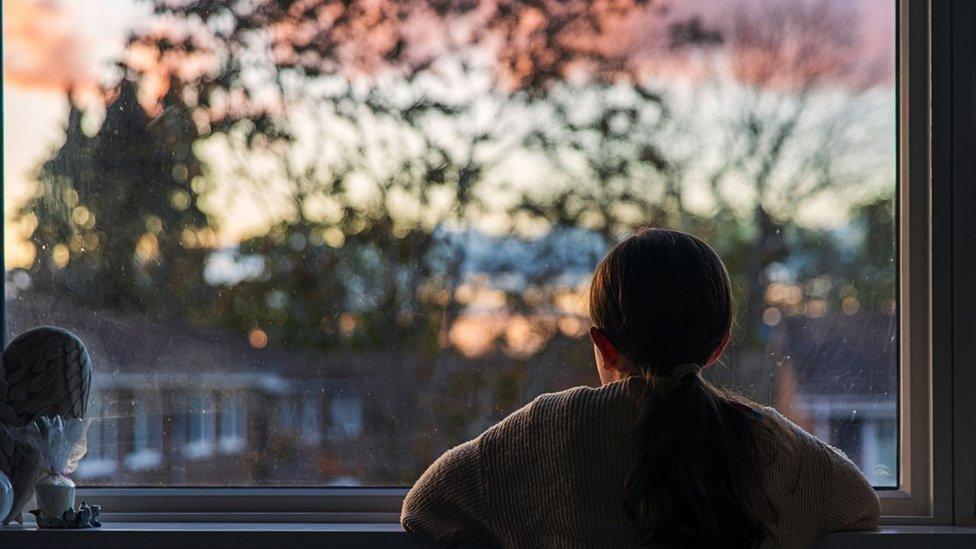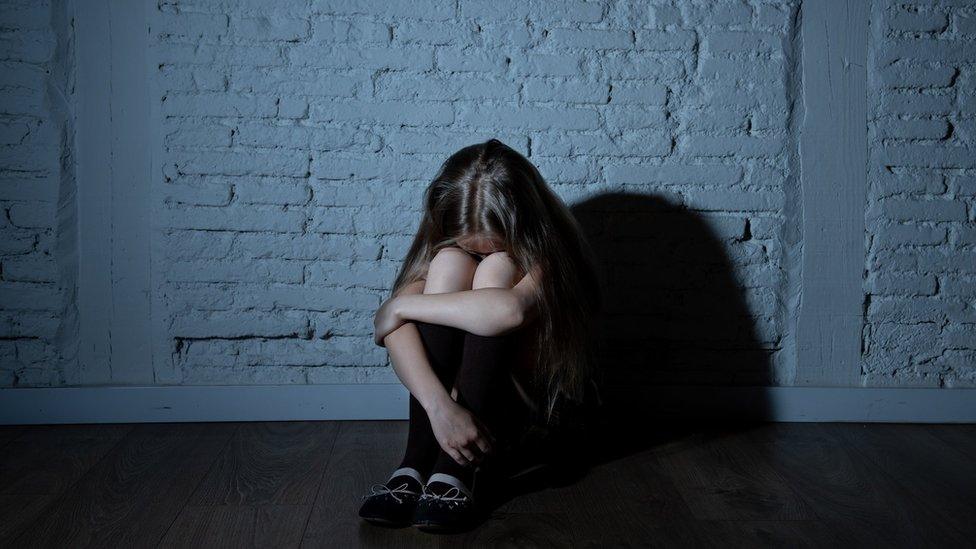Solitary seclusion a no-no for children, says new health policy
- Published

Children and young people should never be shut in a room alone and prevented from leaving, according to the Department of Health.
That is according to newly-published departmental policy on restrictive practices, restraint and seclusion.
It applies across all health and social care settings in Northern Ireland.
Socialite Paris Hilton has previously backed parents, external trying to toughen the law on restraint and seclusion in Northern Ireland's schools.
The businesswoman has said she was placed in solitary confinement when at boarding school in the US as a teenager.
While the Department of Education has previously published interim guidance for schools, there have been calls for laws on when a child can be restrained or isolated in school to be strengthened.
Some parents have campaigned for "Harry's Law," which would make it compulsory for schools to report when they had restrained or isolated a child to parents and the Education Authority.

Paris Hilton previously tweeted her support for the campaign
The new Department of Health policy does not apply to schools but includes the treatment of children and young people - as well as adults - in health and social care.
It defines restrictive practices as those that "limit a person's movement, day-to-day activity or function".
'Punitive and causes harm'
That includes physical or mechanical restraint - where someone is prevented from moving or part of their body is restrained.
Restrictive practice can also include psychological measures like depriving someone of choice or withholding food or drink.
Seclusion, meanwhile, is defined as "the confinement of a person in a room or area from which free exit is prevented".
The Department of Health policy said while restrictive practice or seclusion "may be necessary on occasion", they "should only be used as last resort".
"There must be a real possibility of imminent harm to the person or to staff, the public or others if no action is undertaken," the policy said.
But it said "children and young people should never be subject to seclusion".
"Worldwide evidence provides no definitive conclusion that the use of seclusion has a therapeutic benefit," the policy continues.
"It can be seen as punitive and can cause psychological harm."
'Never use it as discipline'
The policy said the use of restraint and seclusion also risked causing a patient trauma and could hinder their recovery.
"Restrictive interventions, restraint and seclusion should not be used for reasons related to disability," it said.
"Restrictive interventions, restraint or seclusion must never be used as discipline, to inflict pain or humiliation, or a substitute for the provision of proper, person-centred care."
The policy was developed following consultation with a range of organisations including the PSNI, Royal College of Nursing (RCN), Northern Ireland Commissioner for Children and Young People and the Education Authority.
In their consultation response, for instance, the children's commissioner said there should be mandatory reporting of any use of restrictive practices on children in health or social care.
The RCN, meanwhile, said there was a "need for an informed and evidence-based debate about the need for seclusion in the first place".
Related topics
- Published16 December 2021

- Published24 February 2021

- Published20 October 2021
